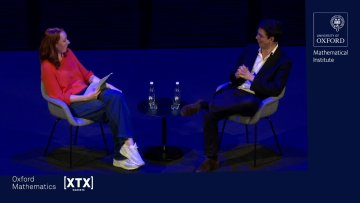On the Elliptic Nonabelian Fourier Transform for Unipotent Representations of p-Adic Groups
Ciubotaru, D
Opdam, E
Representation Theory, Number Theory, and Invariant Theory
volume 323
87-113
(20 Oct 2017)
Flow dynamics in stented ureter
Zheng, S
Carugo, D
Clavica, F
Mosayyebi, A
Waters, S
Urinary Stents: Current State and Future Perspectives
149-158
(21 Aug 2022)
Digits of primes
Maynard, J
European Congress of Mathematics
641-661
(06 Aug 2018)
Combining Sparse Grids, Multilevel MC and QMC for Elliptic PDEs with Random Coefficients
Giles, M
Kuo, F
Sloan, I
Monte Carlo and Quasi-Monte Carlo Methods
volume 241
265-281
(04 Jul 2018)
Non-nested Adaptive Timesteps in Multilevel Monte Carlo Computations
Giles, M
Lester, C
Whittle, J
Monte Carlo and Quasi-Monte Carlo Methods
volume 163
303-314
(14 Jun 2016)
Entropy, Elasticity, and the Isometric Embedding Problem:
Chen, G
Slemrod, M
Wang, D
Hyperbolic Conservation Laws and Related Analysis with Applications
volume 49
95-112
(28 Aug 2014)
Integer colorings with forbidden rainbow sums
Cheng, Y
Jing, Y
Li, L
Wang, G
Zhou, W
Journal of Combinatorial Theory Series A
volume 199
105769
(Oct 2023)
Mappings, dimensionality and reversing out of deep neural networks
Cui, Z
Grindrod, P
IMA Journal of Applied Mathematics
volume 89
issue 1
2-11
(23 Jun 2023)



